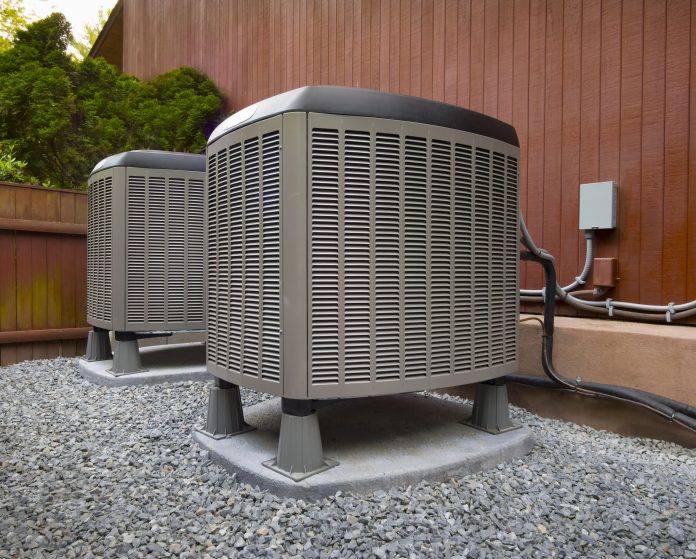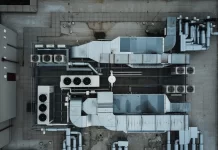No matter how well you maintain your HVAC system, there will come a time when you need to replace it. If you are looking at the end of your heating and cooling systems life cycle or have other issues like repeated failures requiring AC repair, you may be looking to upgrade. Let’s look at some reasons why it might be time to purchase a new HVAC system. You can also refer to this collection of articles on AC repair and related issues.
Table of Contents
Signs It May Be Time to Upgrade
While all systems will have issues from time to time, reoccurring or significant issues can be a clear sign that your heating and cooling system is growing near the end of its lifespan. If you are experiencing any of the following issues, it might be time to look into upgrading your existing HVAC system:
- Temperature Irregularities – If your home isn’t heating or cooling to the desired temperature it may not have been maintained properly and be dirty. Regular maintenance at least once a year should prevent this. Failure to adhere to a routine maintenance schedule can result in an accumulation of dirt and dust or lead to problems like loose or unlubricated components that result in poor performance. If having your unit serviced doesn’t correct the problem, the damage may already be done.
- HVAC System Too Small – If the HVAC unit in your home isn’t adequate to heat and cool the square footage of your home, no amount of maintenance and repairs will help. Perhaps the system chosen is inadequate for the space or perhaps you’ve renovated or made additions. Whatever the case, you’ll need to look at getting a larger unit.
- Excessive Repairs – Your HVAC system should only require routine maintenance and perhaps a rare repair. If you are calling your trusted HVAC repairman increasingly more often, you may want to discuss your options for an upgrade instead.
- Environmental Responsibility – Data from the U.S. Department of Energy show that the typical American home uses more than 10,000 kilowatt-hours of electricity annually. This level of energy use releases about 3,500 pounds of carbon dioxide and 31 pounds of sulfur dioxide into the air. If your system is older, upgrading to a unit with a higher SEER rating can reduce these harmful emissions greatly.
- Increasing Energy Bills – If your HVAC unit has experienced damage or been poorly maintained, it may not be doing its best work anymore. Additionally, energy efficiency has increased greatly over the years. If your unit is older, you will likely find that new models are far superior in operating at a more efficient level that reduces utility costs by as much as 10% to 30%.
- System is Old – If your system is more than 10 or 15 years old, normal wear and tear may have reduced its operating efficiency. Plan ahead to replace older units that may be technologically outdated or lower in efficiency before they become a more serious issue.
- Lack of Control – Many newer HVAC systems offer more control over your heating and cooling needs. A ductless mini-split system can provide you with control over different zones, allowing you to keep them at different temperatures as dictated by inhabitants or needs within the home. For instance, you may want to keep a grow room considerably warmer than you do your den. You might also find a system with a programmable thermostat more convenient.
- If any of these situations apply to you, you may want to discuss your needs with your HVAC professional and consider options that best suit your budget and requirements.
Benefits of Upgrading Your HVAC System
Upgrading to a newer system has many benefits that you should consider when making your decision. You can look forward to the following improvements:
- Reduced Energy Costs – Heating and cooling your home adds up to a large portion of our utility bill each month. An HVAC system that is incorrectly sized or operating improperly will run less efficiently than an upgraded system. Upgrading your system will lower your utility bills and pay for itself in the long term.
- Increased Comfort – If your system isn’t operating efficiently, it isn’t going to heat and cool efficiently. This can result in uneven temperature regulation that makes your house less comfortable to live in. A newer system can return your home to the temperatures you set for it and maintain them consistently, eliminating the discomfort of fluctuations.
- Fewer Repairs – Routine maintenance is important for both old and new HVAC systems. However, additional repairs should not occur very often. If you are spending big money on keeping your HVAC running, that is money out of your pocket, often unexpectedly. An upgrade will save your bank account, improve your peace of mind and keep your home at a comfortable temperature.
How to Upgrade Your HVAC System
If you are reading this article, you are already on your way to upgrading your system. Your very first step is to realize it may be time and begin exploring your options. Once you’ve evaluated the age of your system, repair costs, and energy costs, you will have a better idea of whether it is time to upgrade.
Next, you should contact an HVAC professional to evaluate your system, your budget, and your heating and cooling needs. A qualified HVAC technician will be able to guide you toward a system that suits your requirements. They can also discuss programs that may be of assistance in purchasing a new system, such as government incentives, rebates, or additional home improvements that may help your unit gain additional efficiency.
Armed with the information a professional can provide, you will be able to make the best decision for upgrading your HVAC system. A new system can eliminate excessive repairs, save you money on utilities, heat and cool more efficiently and reduce your carbon footprint. An investment in a quality HVAC system may seem costly up-front, but it can save you much more in the years to come.
















